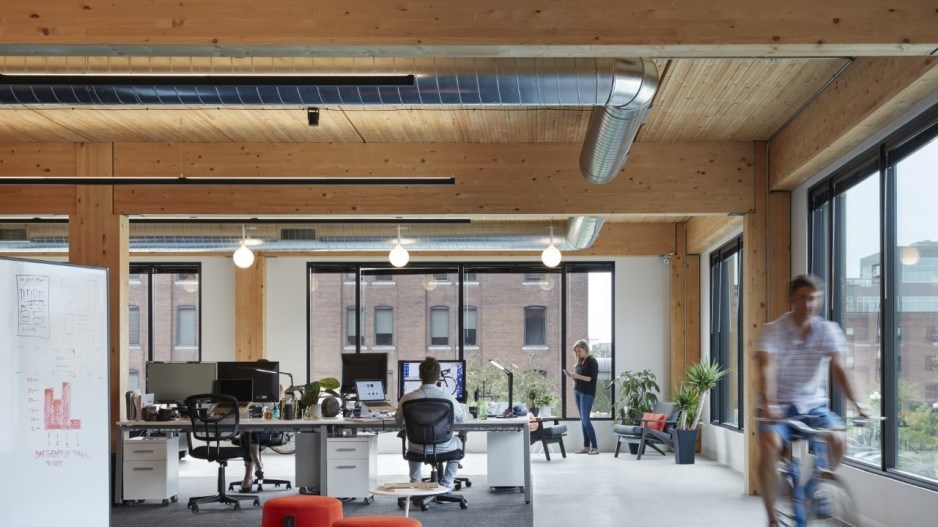Texas-based megadeveloper Hines, which recently announced a joint venture to build a new 32-storey office tower at 1166 West Pender, has now linked with PC Urban of Vancouver on the largest and tallest mass-timber office building in Western Canada.
Located at 123 East 6th Avenue, T3 Mount Pleasant will be built of mass timber, where engineered wood replaces concrete. The building will also be certified Wirescore, which means it will have the world’s most robust digital and communications technology and be “future-proofed” to link into whatever new technology becomes available.
“T-3 stands for timber, transit and technology,” said Syl Apps, senior managing director at Hines, in an interview from his Toronto office. Apps said Hines has developed five buildings using T-3 – a Hines’ proprietary office product – in Toronto and nearly a score of them across the U.S. since its first such project in Minnesota in 2006.
T3 Mount Pleasant will be a 10-storey structure with 196,000 square feet of leased office space. Construction is expected to begin in 2022 and be completed in 2024.
Apps said many office tenants like the authenticity of old brick-and-beam buildings, but such structures do not work well with contemporary technology.
Hines mass-timber buildings, Apps explained, are super quiet and are Wirescore certified, wired with the very latest in communications and digital technology.
Building with mass timber offers more than aesthetics, he added.
Employees exposed to wood during their workday have higher levels of well-being and take less sick leave, studies have shown. Timber also has natural anti-bacterial and anti-microbial properties.
The HVAC system will provide superior indoor air quality, and the building design will maximize energy efficiency and natural light, according to Brent Sawchyn, CEO of PC Urban.
The current site of the T3 Mount Pleasant is on land owned by the City of Vancouver and occupied by the Simon Fraser University Annex, a 1928 heritage structure that will be incorporated into the new office building.
“We were selected by the city to acquire and redevelop the property based on our previous work in the area and our experience with heritage revitalization,” Sawchyn said. “We looked at the site as a perfect opportunity to bring mass timber office construction to Vancouver, and there is no one in North America with as much experience with this building form as Hines.”
The concept is for a building with the authentic appeal of century-old architecture but the smarts of the 21st century and beyond.
“Wirescore certifies that the building has the most advanced technology, especially regarding redundancy and resiliency. This includes multiple telecom pathways into the building, multiple sources of backup power and robust connectivity throughout the building to boost the cell signal,” Apps explained. “It means that the internet connection, or the power, will never go down.”
Abbs said Hines suspects the Wirescore certification leads to superior lease rates and longer tenancies, but said it is too early to quantify that, though he said it does cost more to provide the redundancy systems, such as back-up power generators and wiring for multiple internet hubs.
“It is money well spent,” Apps said. “We do it because it is important to our tenants, and therefore it is important to us.”
Hines is also doing the first retrofit of Wirescore in Canada, with its reconfiguration of the 40-year, 27-storey First Tower at 411 First Street SE, Calgary, which Hines bought with a partner in 2018. Once tenanted by Telus, the office tower was already equipped with modern telecom connectivity, Apps noted.
Hines is a privately owned global real estate investment firm founded in 1957 with a presence in 25 countries. With approximately $144.1 billion of assets under management, the firm has 165 developments currently underway around the world.




